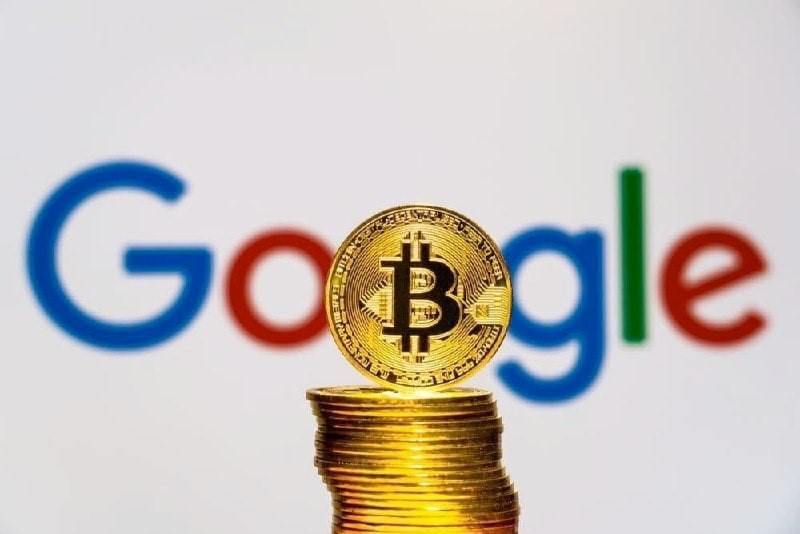In recent years, Bitcoin has significantly transformed the landscape of global finance. This digital asset, initially regarded with skepticism by traditional financial institutions, now competes on the global stage as one of the largest assets by market capitalization. As Bitcoin continues to break records and capture headlines, it sparks intriguing comparisons with established technology giants such as Alphabet. This analysis delves into the factors propelling Bitcoin’s remarkable ascent, its market dynamics, and its structural nuances compared to tech behemoths.
Bitcoin’s Meteoric Rise: A Comparative Analysis with Alphabet
Understanding Bitcoin’s Market Position
Bitcoin’s evolution is nothing short of revolutionary, recently topping a weekly close at an unprecedented $106,000. This monumental achievement placed it as the sixth-largest asset globally, surpassing Alphabet in market value. At the time of this analysis, Bitcoin’s market capitalization was at $2.038 trillion, slightly overtaking Alphabet’s $2.02 trillion.
While gold retains its position as the leading global asset with a market cap of $21.70 trillion, technology companies like Microsoft, Nvidia, Apple, and Amazon closely follow, setting the stage for Bitcoin’s entry into this elite group. During the peak trading period, Bitcoin’s market cap soared to $2.11 trillion, though it adjusted to $103,146, marking a minor daily fluctuation.
Key Drivers Behind Bitcoin’s Price Surge
Bitcoin’s recent rally, nearly touching $107,000, can be attributed to a confluence of factors rather than a singular event. The digital currency is increasingly viewed as a safe haven, particularly in light of recent economic uncertainties such as Moody’s downgrade of the U.S. sovereign credit rating and diminishing trade tensions. Moreover, the inflow into U.S.-listed Bitcoin exchange-traded funds has been substantial, with net additions of $608 million within a week, signaling renewed investor confidence.
Contrastingly, Alphabet also experienced a robust market performance with its stock appreciating over 5%, closing the week at $167.43.
Structural Differences: Bitcoin vs. Alphabet
To comprehend the dynamics between Bitcoin and Alphabet, it is crucial to recognize their inherent differences. Alphabet is a tech conglomerate with tangible assets underpinning its valuation, including services like Google Search, YouTube, and cloud solutions, making it a staple on the stock market.
Conversely, Bitcoin is a purely digital entity, functioning on a decentralized ledger and exchanging hands on a 24/7 global network. This continuous trading capability allowed Bitcoin to gain an advantage in market movement over the weekend, while Alphabet’s stock had to wait for the traditional market to reopen.
Despite Bitcoin’s momentary lead, its inherent volatility might result in ephemeral supremacy over Google, especially as digital asset markets prepare for potential liquidity outflows.
Frequently Asked Questions
Is Bitcoin a reliable investment compared to traditional assets like Alphabet?
Bitcoin offers a unique value proposition as a decentralized currency with limited supply, which can appeal to those seeking diversification. However, its volatility can pose risks that traditional stocks may not, so investors should weigh their risk tolerance and investment strategy carefully.
What implications does Bitcoin’s growth have for global finance?
The growth of Bitcoin signifies a shift towards digital assets and decentralized finance, challenging conventional banking and investment paradigms. This evolution encourages widespread adoption and regulatory discussions around cryptocurrency.
How can investors stay informed about trends in Bitcoin’s market value?
Utilizing reliable financial insights platforms like Finances Zippy can provide investors with real-time price predictions and expert-driven market analyses, ensuring they make informed decisions based on current market conditions.
What differentiates Bitcoin’s trading dynamics from those of Alphabet?
Bitcoin operates in a continuously open market, allowing for 24/7 trading worldwide. This continuous operation contrasts with Alphabet’s stock, which is bound by traditional market hours, giving Bitcoin unique opportunities to capitalize on moments when traditional markets are dormant.
This comprehensive guide offers a deep dive into Bitcoin’s remarkable journey, its comparative analysis with established corporate titans like Alphabet, and its implications for the future of finance. The insights provided are designed to equip readers with the knowledge needed to navigate the evolving landscape of cryptocurrency investments.

